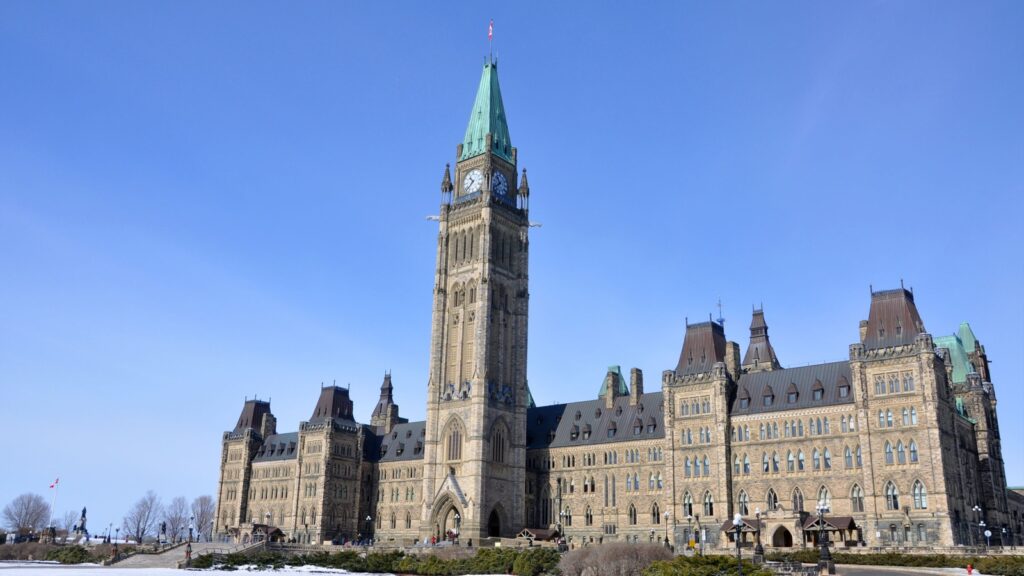Canada and the United States share a long border, close trade ties, and similar cultural influences. However, when it comes to laws, Canada often adopts a distinctly different approach, particularly in areas such as healthcare, labor rights, and public safety. While some American policies lean toward individual freedom and market control, Canadian laws tend to focus more on social welfare, fairness, and public accountability. Here are 25 Canadian laws that many believe surpass those of their American counterparts.
Illegal to Pretend to Practice Witchcraft (until repealed in 2018)

Canada had a law under Section 365 of the Criminal Code that made it illegal to pretend to practice witchcraft fraudulently. The law wasn’t against genuine spiritual practices, but rather targeted individuals pretending to have magical powers to deceive or scam others. It involved activities such as fake fortune-telling or pretending to cast spells for money. Although it was rarely enforced, the law remained in place for decades and was only repealed in 2018. The law often surprised people outside Canada, as it felt outdated in today’s world of spiritual freedom and diverse beliefs.
Prohibition on Challenging Someone to a Duel

Challenging someone to a duel is a criminal offense in Canada. According to Section 71 of the Criminal Code, issuing or accepting a duel challenge is punishable by law. While this may sound like something from an old movie, the law remains valid. It was designed to prevent violence and promote peaceful conflict resolution, even if the idea of dueling is no longer part of modern life. Americans might find this unusual, especially since similar laws are mostly forgotten or rarely mentioned in the U.S.
Ban on Owning Pet Rats in Alberta and Other Provincial Limits

In Alberta, owning a pet rat is prohibited, except in controlled settings such as zoos or research facilities. This law was enacted as part of the province’s aggressive rat control program, which aims to keep Alberta rat-free. The province takes rodent control very seriously and even has a dedicated rat patrol. While rats are common pets in many parts of the world, including the U.S., Alberta’s strict approach often surprises outsiders. This unique rule highlights the province’s long-standing commitment to protecting its agriculture and environment.
Fines for Whistling, Singing, or Yelling Late at Night in Ontario Towns
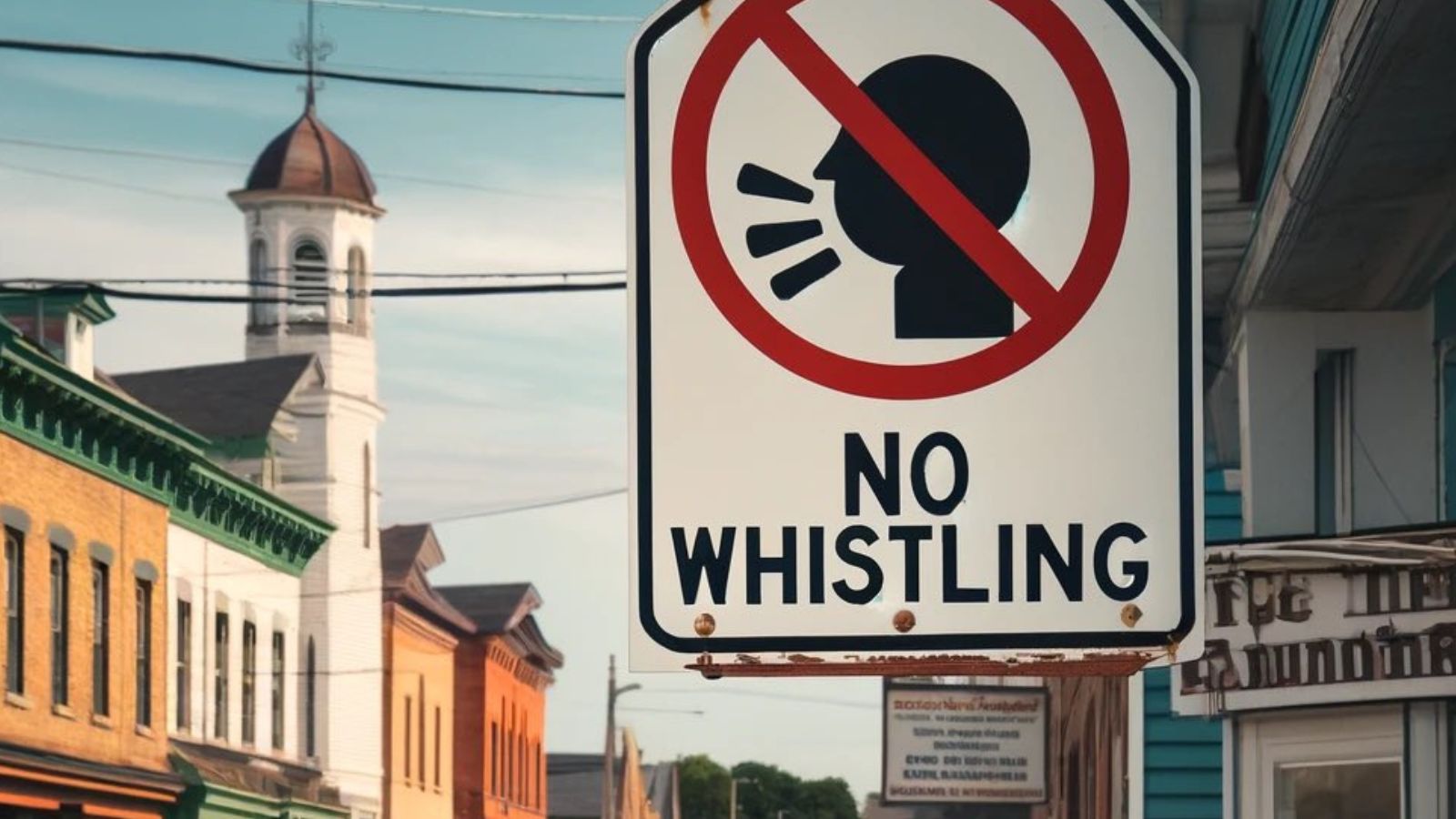
Several towns in Ontario have noise bylaws that ban whistling, singing, or yelling between certain hours, usually late at night. These laws are part of local efforts to reduce noise pollution and maintain public peace. If someone breaks this rule, they could face a fine, even if they’re singing their favorite tune while walking home. While noise bylaws exist in the U.S. as well, the strictness and enforcement in some Canadian towns can seem somewhat extreme to outsiders.
Limit on Snowman Height in Prince Edward Island

In some communities within Prince Edward Island, there are local bylaws that limit the height of snowmen. While these rules aren’t always strictly enforced, they were introduced to prevent large snow structures from obstructing visibility or becoming safety hazards. It’s a quirky regulation that often raises eyebrows, especially in a country known for embracing winter fun. Compared to the U.S., where such playful expressions are rarely regulated, this rule feels especially peculiar.
Law Against Dragging a Dead Horse Down Yonge Street on a Sunday
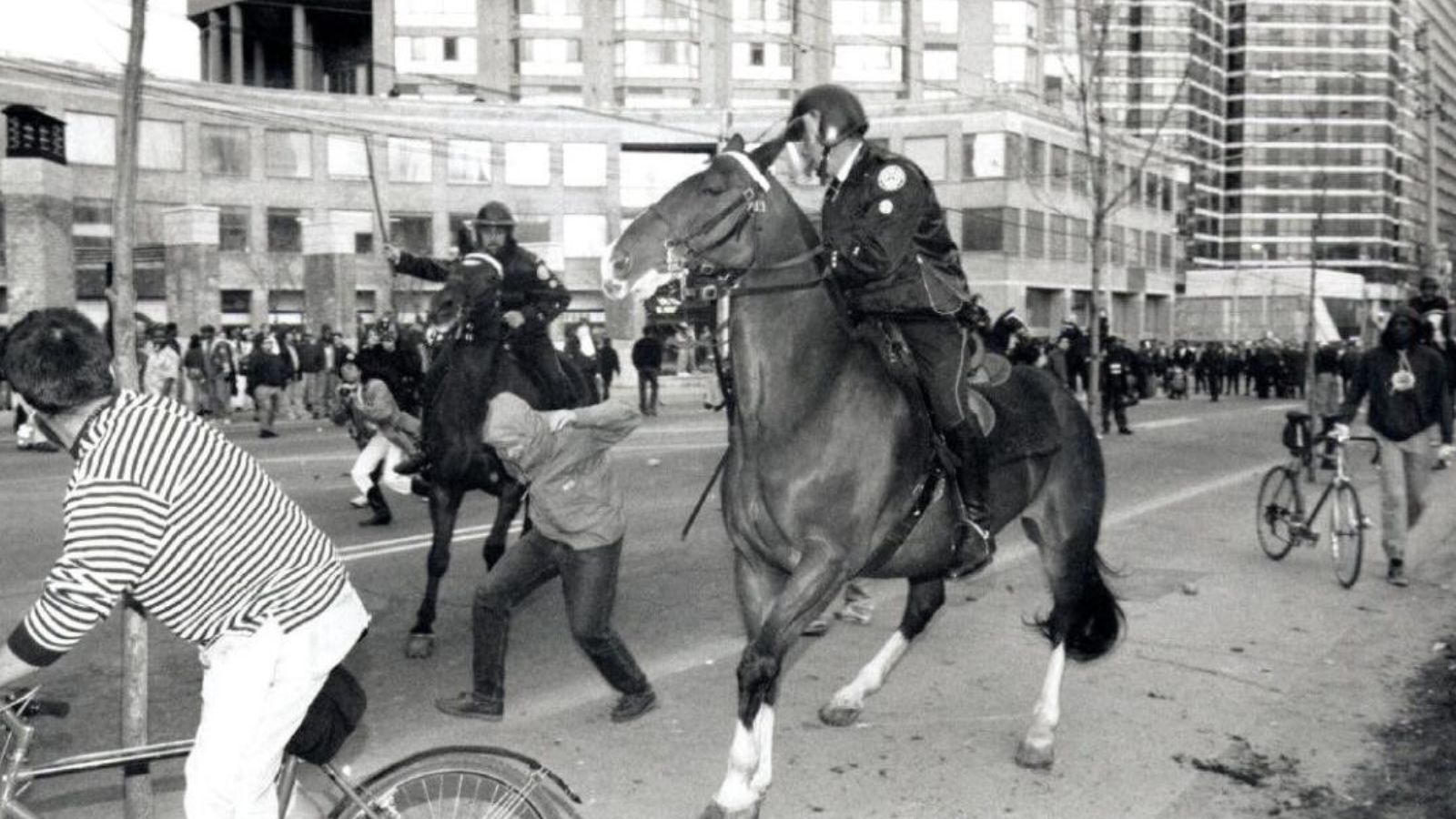
An old law in Toronto once made it illegal to drag a dead horse down Yonge Street on a Sunday. While this law is rarely, if ever, relevant today, it reflects a time when horses were a primary mode of transportation. The inclusion of a specific day of the week makes it even more unusual. Although many places in the U.S. still have outdated or odd laws on the books, this one continues to be cited as one of Canada’s most amusing examples.
Restrictions on Paying with Too Many Pennies in One Transaction

According to the Canadian Currency Act, you can’t use more than 25 pennies at once in a single transaction. This rule was initially implemented to prevent individuals from settling large bills with bags of coins, which can be frustrating for retailers. Although pennies were phased out in 2013, the law remains in effect. In contrast, the U.S. doesn’t impose such specific limits, making this a uniquely Canadian approach to coin control.
Bylaw Against Noisy Pet Parrots in Oak Bay, BC

In Oak Bay, British Columbia, a local bylaw states that pet parrots must not disturb neighbors with loud or repetitive sounds. If a parrot squawks too much and causes a noise complaint, the owner could face a fine. This level of regulation on pet behavior may seem excessive to Americans, who generally address such issues under general noise ordinances. Canada’s attention to quiet neighborhoods elevates pet etiquette to a new level.
Ban on Painting a Wooden Ladder in Nova Scotia

In Nova Scotia, occupational safety regulations prohibit painting wooden ladders. The law exists because paint can cover up cracks, splits, or signs of rot that indicate the ladder is unsafe. A fresh coat of paint may make the ladder look new, but it can hide structural weaknesses that could lead to serious workplace accidents. Instead of relying on appearance, inspectors and workers are expected to assess ladders based on their natural condition. While this might seem overly cautious to outsiders, it reflects Canada’s strong emphasis on workplace safety. In contrast, U.S. regulations are typically broader, often allowing more discretion regarding equipment maintenance.
Anti-Comic‑Crime Rule Barring Crime‑Fighting Comic Books

In Nova Scotia, occupational safety regulations prohibit painting wooden ladders. The law exists because paint can cover up cracks, splits, or signs of rot that indicate the ladder is unsafe. A fresh coat of paint may make the ladder look new, but it can hide structural weaknesses that could lead to serious workplace accidents. Instead of relying on appearance, inspectors and workers are expected to assess ladders based on their natural condition. While this might seem overly cautious to outsiders, it reflects Canada’s strong emphasis on workplace safety. In contrast, U.S. regulations are typically broader, often allowing more discretion regarding equipment maintenance.
Toronto Park Bylaw Banning Swear Words and Public Offences

In Toronto, using offensive language in public parks can get you fined. The city’s Municipal Code forbids shouting, screaming, or swearing in public parks, especially if it disturbs others. This bylaw aims to maintain parks as family-friendly and peaceful spaces for everyone. While enforcement is rare, park officers have the authority to issue warnings or fines. It’s part of a broader Canadian effort to maintain public order and promote polite behavior in shared spaces. Compared to the U.S., where free speech protections under the First Amendment are much broader, Canada tends to prioritize community harmony over individual expression in such contexts.
Ontario’s Apology Act: Saying Sorry Doesn’t Mean You Admitted Guilt

In Ontario, people can legally say “sorry” after an incident without it being seen as an admission of guilt. The Apology Act, passed in 2009, makes it clear that expressing sympathy or regret can’t be used against someone in court. This law reflects Canadian culture, where saying sorry is common and often used to show empathy rather than to accept blame. In the U.S., however, apologizing is often avoided in legal situations because it can be seen as an acknowledgment of fault. This Canadian law encourages open communication and emotional sensitivity without increasing legal risk.
Federal Ban on Sunday Commercial Activity (Lord’s Day Act, repealed)
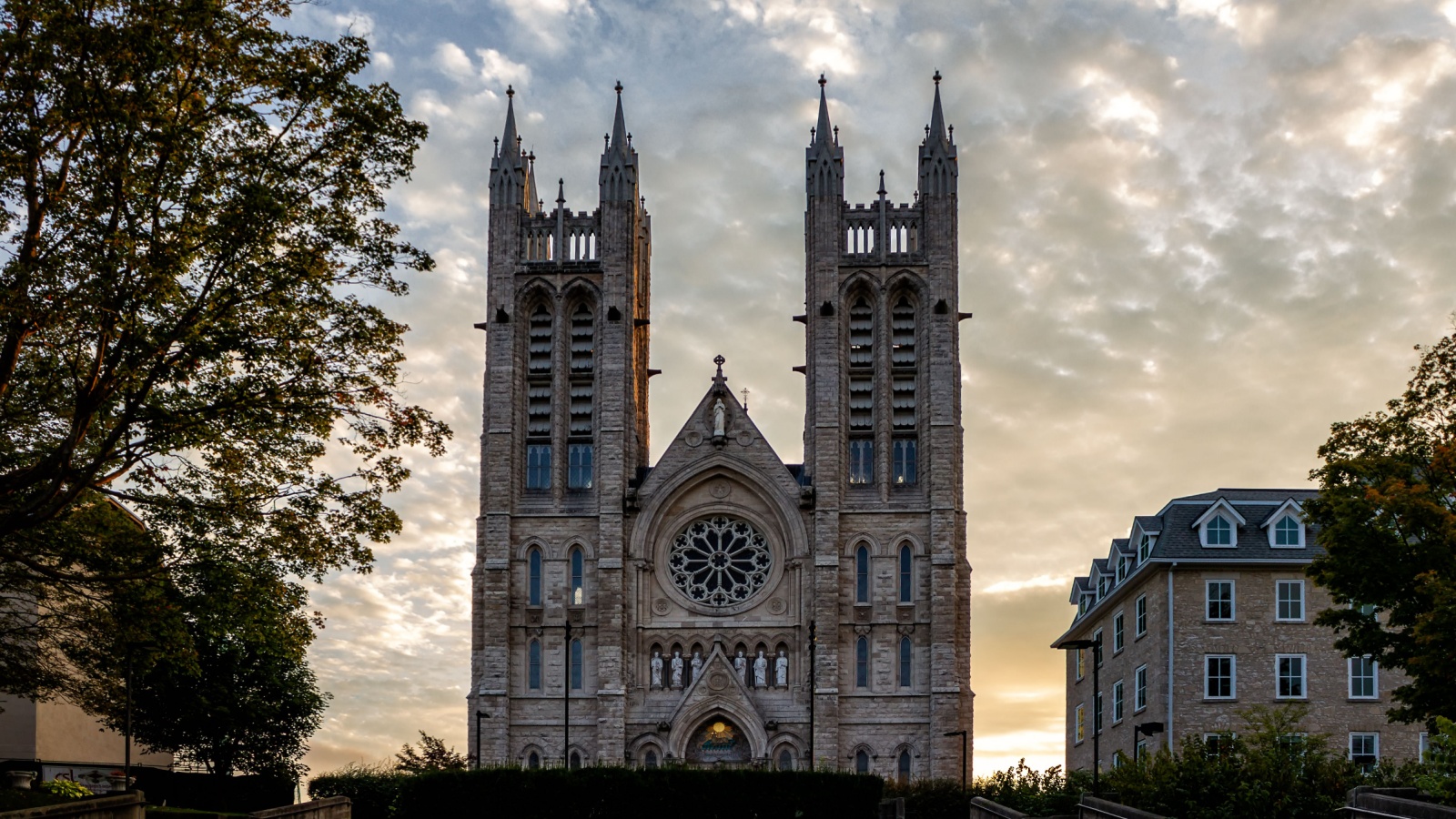
Canada once had a federal law known as the Lord’s Day Act, which prohibited most businesses from opening on Sundays. Passed in 1906, the law was meant to preserve Sunday as a day of rest and religious observance. It prohibited most forms of work and commerce, including shopping and entertainment. Although the act was repealed in 1985 following a Supreme Court ruling, many provinces retained similar laws for years. In contrast, Sunday shopping was already widespread in most parts of the U.S. by the 1970s. The Lord’s Day Act serves as an example of how deeply religious and cultural traditions once shaped Canadian law.
Quebec’s “Padlock Law” Against Communist Propaganda (historical)

Passed in 1937, Quebec’s “Padlock Law” allowed authorities to padlock any building suspected of distributing communist propaganda. This controversial law was aimed at stopping the spread of Marxist or socialist ideas during a time of political fear. The government did not need solid evidence—mere suspicion was enough to shut down a property. Critics argued that the law violated freedom of speech and due process. The Supreme Court of Canada eventually ruled it unconstitutional in 1957. Compared to the U.S., where political speech, even extremist views, is fiercely protected, this law showed how Canadian governments once acted more aggressively to suppress perceived ideological threats.
Limits on Stun Gun or Electroshock Weapon Ownership

In Canada, owning a stun gun or electroshock weapon is generally prohibited for civilians. These devices are classified as prohibited weapons under federal law, and only law enforcement personnel or individuals with a special license may possess them legally. The restrictions are in place to prevent misuse and reduce the risk of violent confrontations. While Americans in many states can legally purchase and carry stun guns for self-defense, Canadians are held to stricter regulations. This reflects the broader difference in attitudes toward personal weapon ownership between the two countries, with Canada emphasizing public safety over self-defense rights.
Criminalization of Euthanasia Before MAiD Laws (now regulated)

Before Canada passed its Medical Assistance in Dying (MAiD) law in 2016, euthanasia and assisted suicide were criminal offenses. Helping someone end their life, even out of compassion, could lead to serious charges. This made it illegal for doctors to assist terminally ill patients who wished to die with dignity. The shift came after court challenges and public advocacy highlighted the need for humane end-of-life options. In contrast, many U.S. states still prohibit assisted dying, with only a handful allowing it under stringent rules.
Expanded MAiD – Medical Assistance in Dying (including disabilities)
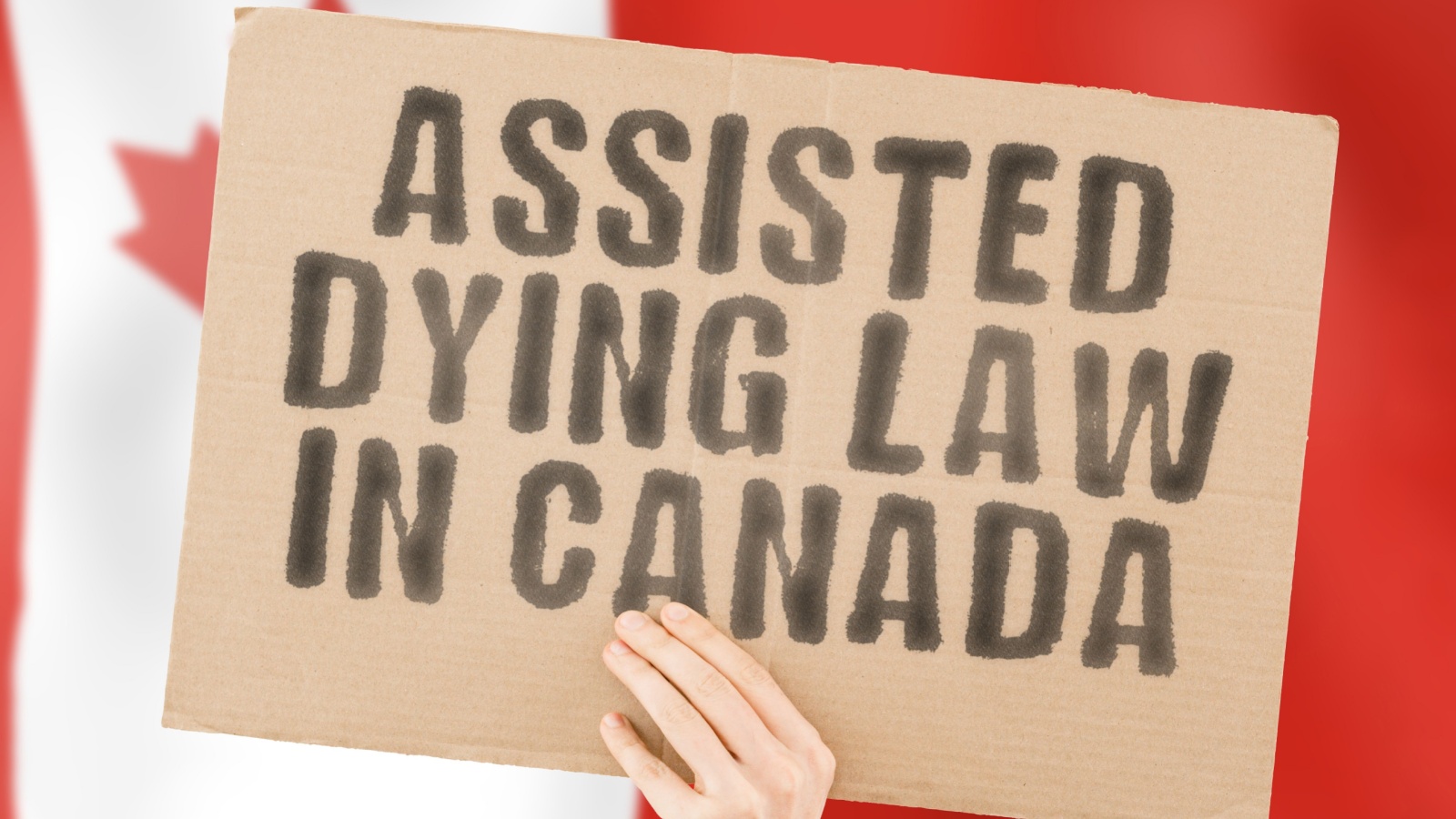
Canada’s Medical Assistance in Dying (MAiD) law started in 2016, allowing terminally ill adults to choose assisted death. In later years, the law expanded to include people with serious and chronic conditions, even if they were not dying. This included some individuals with disabilities, which led to growing concern. Critics argue this change could pressure vulnerable people to choose death due to a lack of support, not personal choice. In the U.S., only a few states allow assisted dying, and only for terminal illness. Canada’s broader policy shows a more liberal but controversial approach to autonomy and end-of-life rights.
Book Import Restrictions Used to Censor Obscene or Hate Speech
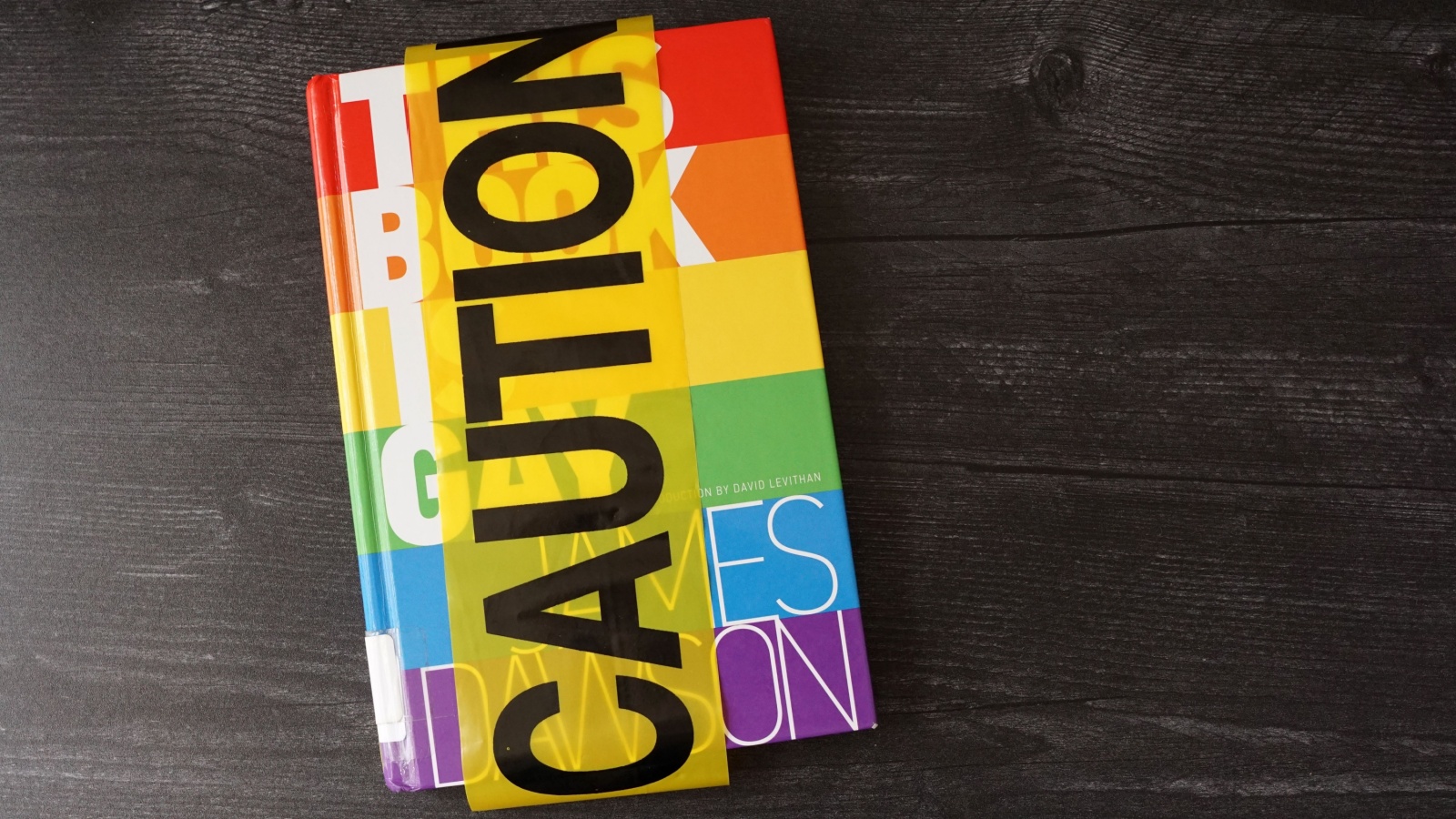
Canada’s Customs Act gives border officials the right to stop books, films, or materials that they consider obscene or hateful. Items with graphic sexual content or hate propaganda are often flagged. These rules were designed to protect Canadian society from harmful material, but they also raised concerns about censorship. Books that are legal in the U.S. have been blocked in Canada because of this law. Unlike the U.S., which has strong First Amendment protections, Canada allows its government more control over what can be legally imported and distributed.
Broad Obscenity Standards That Affected Art and Digital Expression

Canada’s definition of obscenity is broader than in many other countries. The law targets materials that are seen as “unduly exploiting sex” or violating public morals. This has affected films, artwork, literature, and even online content. Artists and independent creators, especially those from the LGBTQ+ community, have faced legal challenges because of this vague standard. Over time, enforcement has become less strict, but the law still poses a risk to freedom of expression. In comparison, the U.S. offers more protection for art and media under its Constitution, even when the content is controversial or explicit.
Unified Federal Criminal Code (No At-Will Employment in Canada)
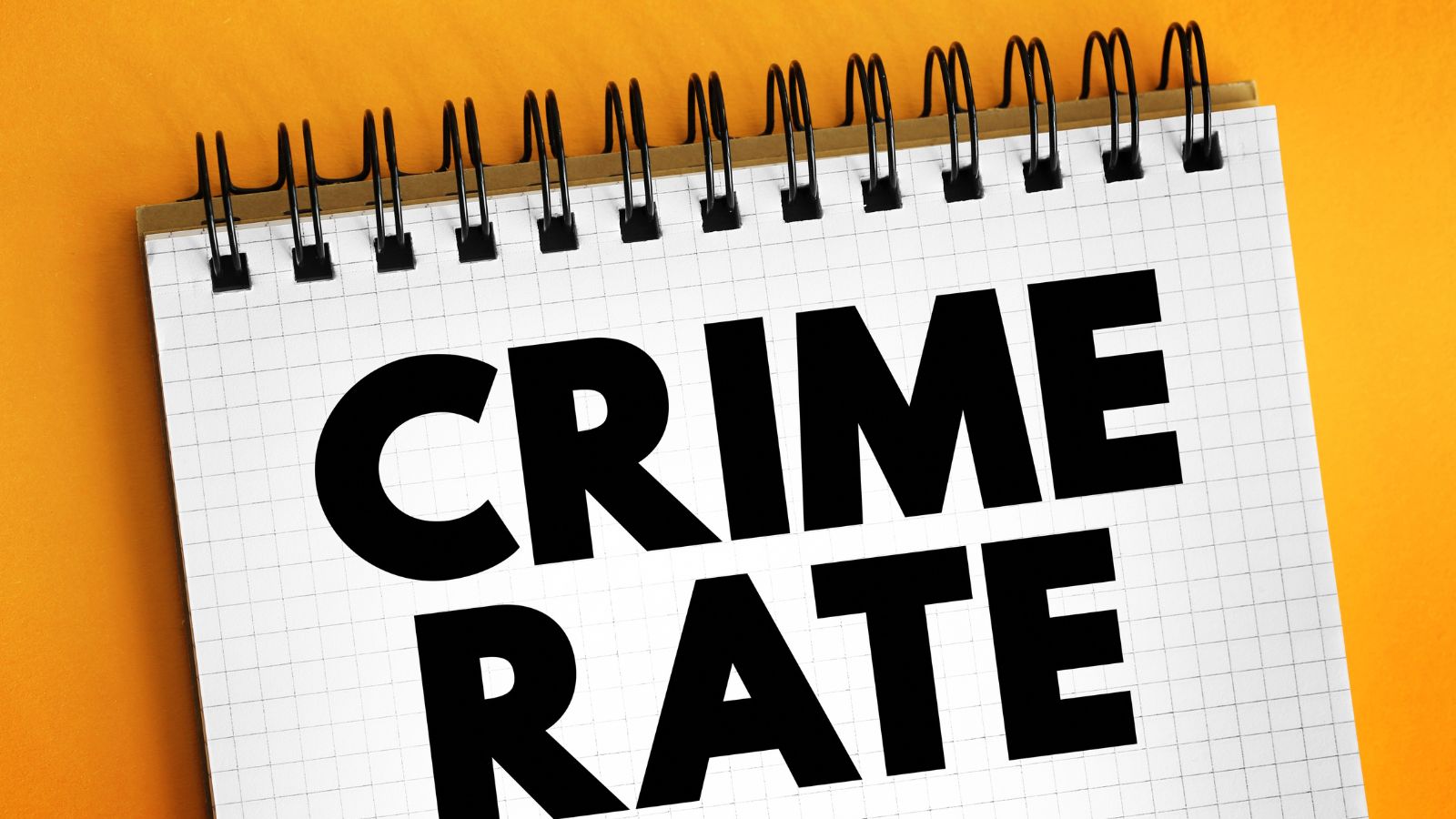
Canada has a single federal Criminal Code that applies uniformly across all provinces and territories. This helps maintain consistency in how crimes are defined and prosecuted. In contrast, the U.S. has different criminal laws in each state, which can result in significant differences in sentencing and enforcement. Additionally, Canada does not follow the “at-will” employment model seen in most U.S. states. In Canada, employers are required to provide proper notice or severance pay when terminating a job, and firing without cause is significantly more challenging. This offers workers more job security and legal protection compared to many American employees.
Mandatory Paid Parental Leave Benefits (up to 18 months)
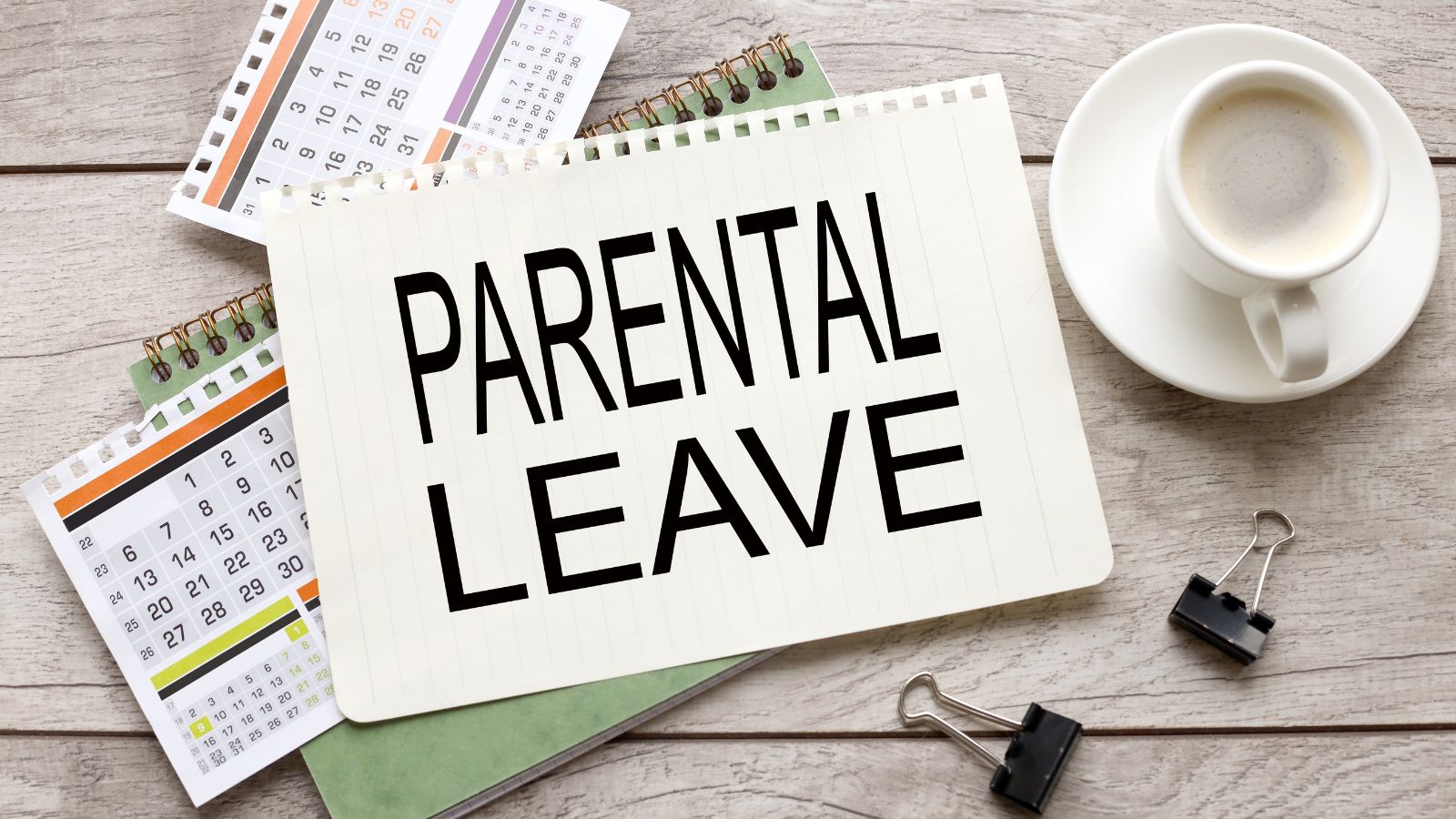
In Canada, new parents are entitled to paid parental leave through Employment Insurance. The standard benefit allows up to 12 months of partially paid leave, while the extended version stretches to 18 months with lower payments. This leave can be shared between parents and is available to both mothers and fathers. The U.S. has no federal paid parental leave program, and only a few states offer it. Most new American parents must rely on unpaid leave or personal savings. Canada’s policy supports families more generously, allowing parents time to bond with their newborns without risking financial hardship.
Minimum Paid Vacation Time Required by Federal Law

Canadian labour law ensures that all employees receive a minimum of two weeks of paid vacation per year, increasing to three weeks after five years of service with the same employer. Some provinces offer even more generous policies. This paid time off is mandatory and protected under employment law. In contrast, the U.S. does not guarantee paid vacation at the federal level; it is up to individual employers to offer it. This means many American workers get no guaranteed vacation time at all, while Canadians benefit from a healthier work-life balance as a legal right.
Absence of “At-Will” Employment Rights for Employers

In Canada, employers cannot terminate employees without cause or provide proper notice unless severance pay is offered as compensation. This protects workers from sudden and unjust job loss. Employment contracts and provincial laws clearly outline the terms under which a job can end. Unlike in the U.S., where “at-will” employment allows firing without explanation in most states, Canada requires justification and procedural fairness. This approach promotes greater stability and fairness in the workplace, preventing arbitrary dismissals.
Canadian Gun Law Strictness Compared to U.S. (tourists warned)
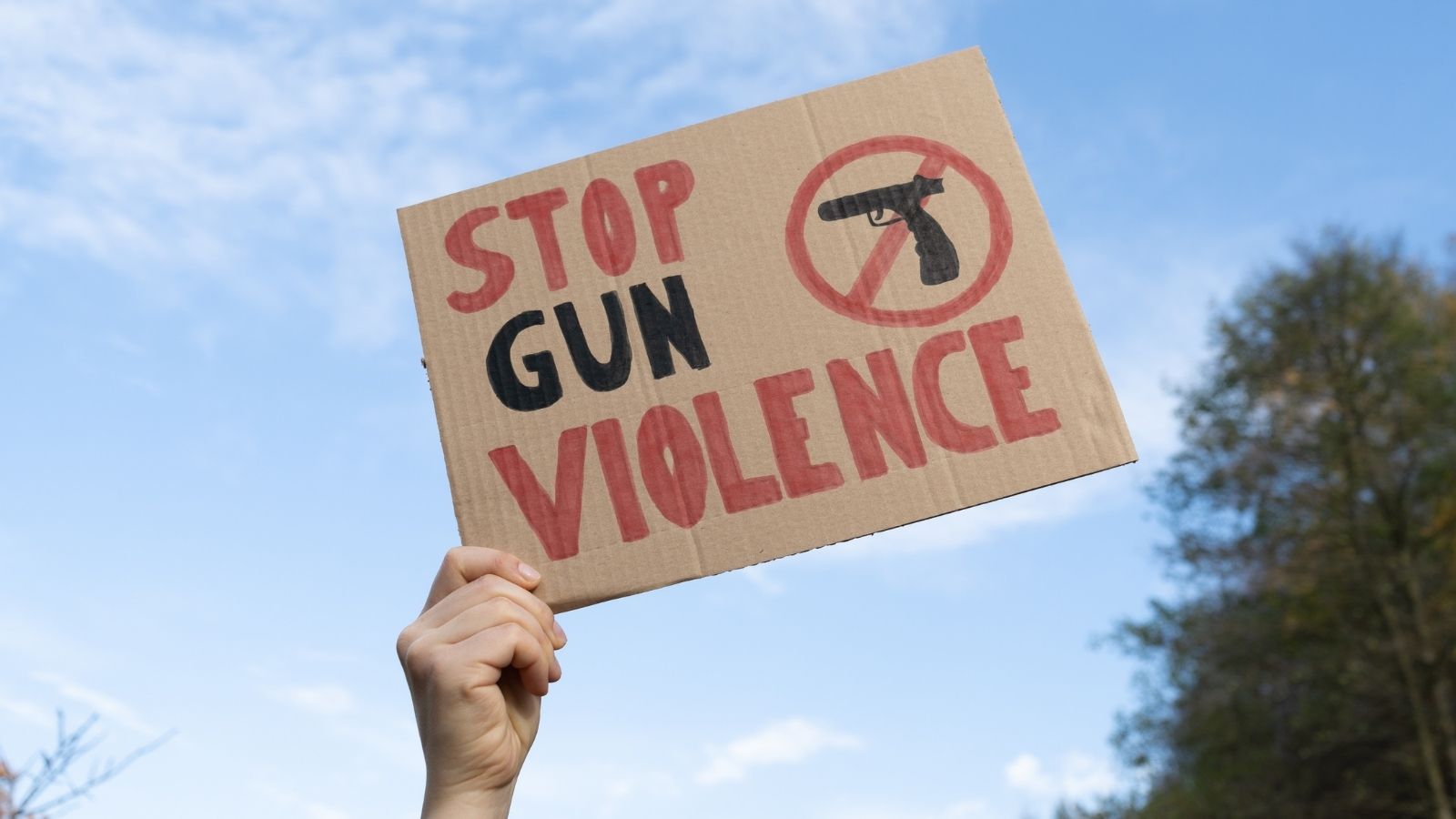
Canada has some of the strictest gun laws in the Western world. Gun ownership requires a license, background checks, and mandatory safety training. Certain firearms are banned, and storage and transport laws are highly regulated. Tourists are often warned not to bring guns into the country unless they follow very strict legal steps. In contrast, gun ownership is more accessible in many parts of the U.S., with some states requiring little to no permit or training. The Canadian approach emphasizes public safety and regulation, making it very different from American norms.
Absence of Term Limits for Members of Canadian Parliament
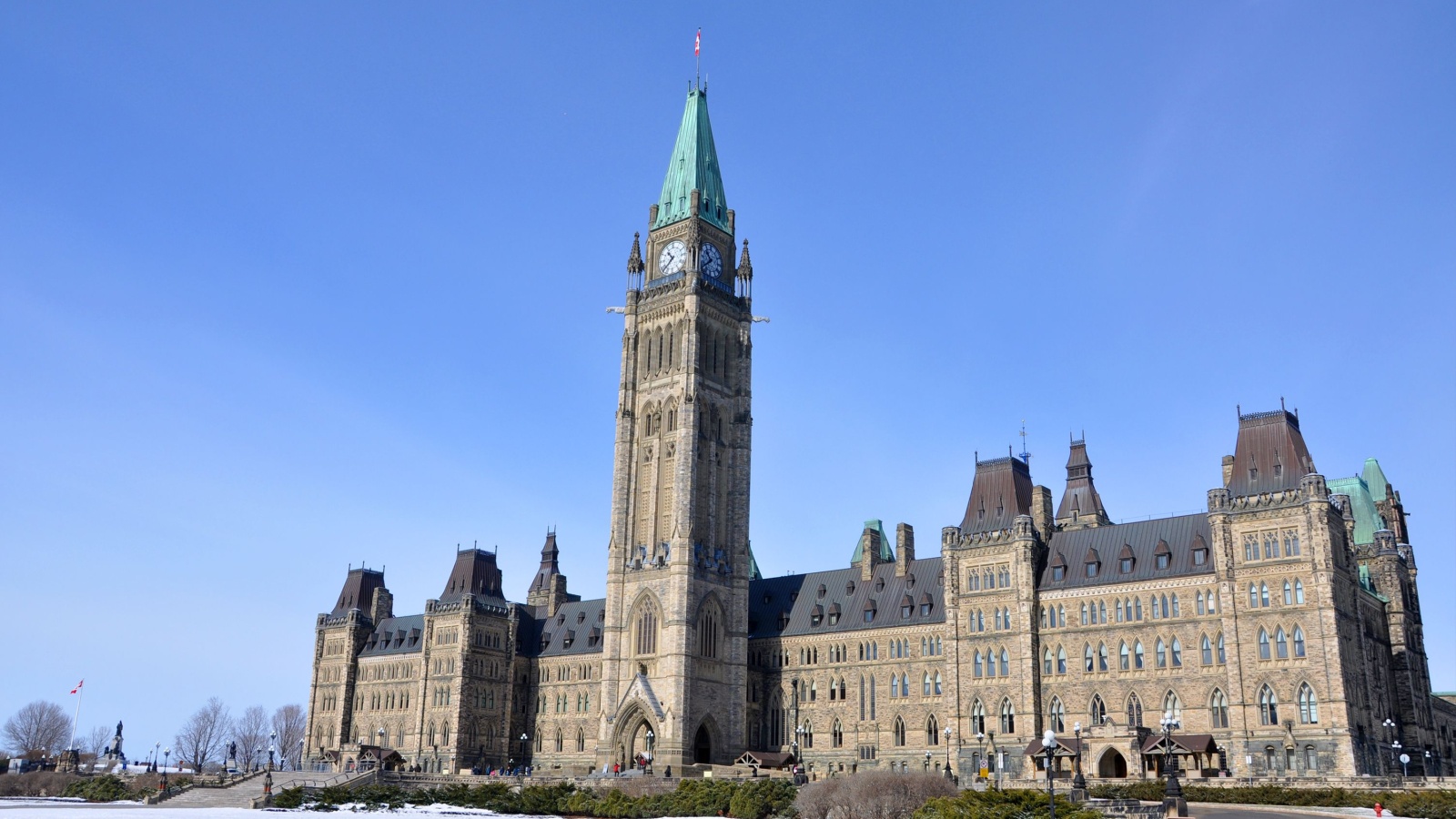
Canadian Members of Parliament (MPs) can serve unlimited terms as long as they are re-elected. There are no fixed limits on the number of terms one can serve. This allows voters to keep experienced lawmakers in office if they continue to have public support. In the U.S., while there are no term limits for Congress, some states impose term limits for local positions, and there are ongoing debates about implementing federal term limits. Canada’s approach trusts voters to make that decision during every election, rather than arbitrarily capping service.
21 Products Canadians Should Stockpile Before Tariffs Hit

If trade tensions escalate between Canada and the U.S., everyday essentials can suddenly disappear or skyrocket in price. Products like pantry basics and tech must-haves that depend on are deeply tied to cross-border supply chains and are likely to face various kinds of disruptions
21 Products Canadians Should Stockpile Before Tariffs Hit
